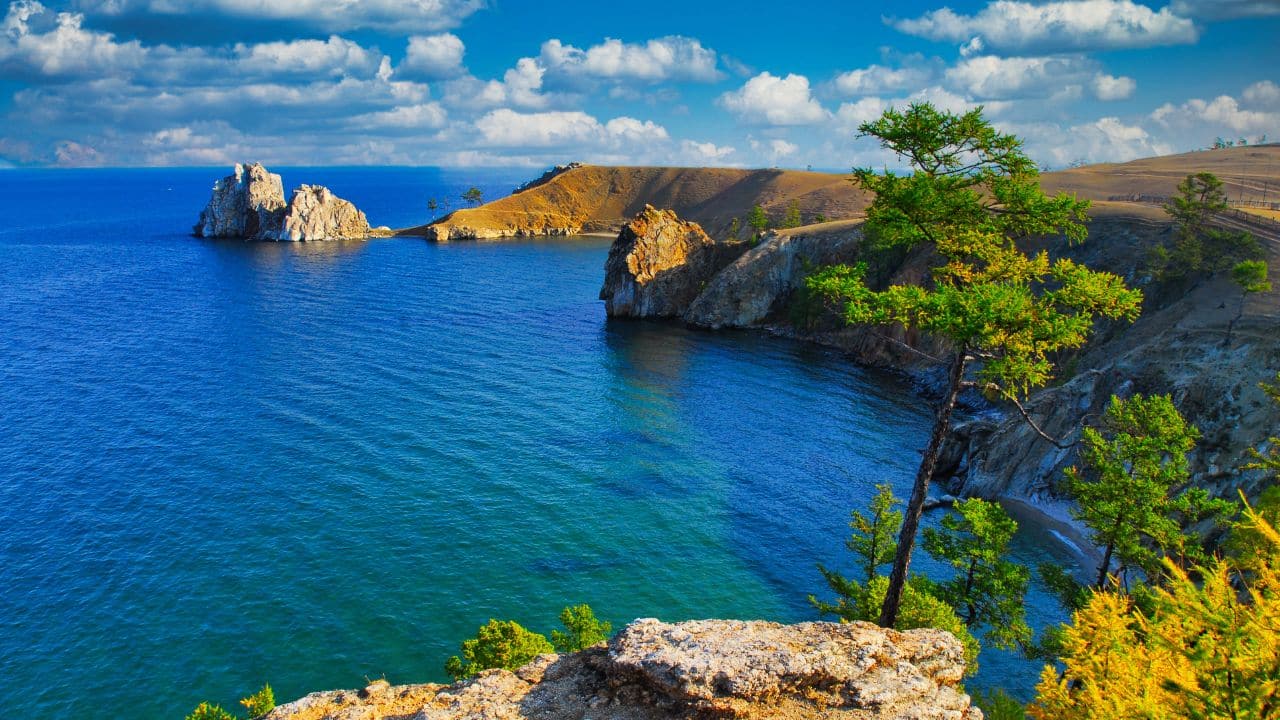



Some places on Earth hold stories older than humanity itself. One such place is Lake Baikal in Siberia. This enormous lake has existed for 25 million years, making it the oldest freshwater lake on the planet. Its depths hide secrets of the past, while its waters support life found nowhere else. Scientists continue to study this remarkable lake to understand its unique history and ecosystem.
A Lake Older Than Mountains
Lakes, like mountains, can last millions of years. However, most lakes are short-lived in geological time. Only 20 ancient lakes exist today, but Lake Baikal is the oldest. Scientists estimate its age at 25 million years, far older than North America's Great Lakes, which are only 20,000 years old. The second-oldest lake, Lake Issyk-Kul in Kyrgyzstan, is about 20 million years old.
Lake Baikal is also one of the world's largest lakes, covering 12,239 square miles (31,700 square kilometres). More impressively, it is the deepest lake on Earth, plunging 1 mile (1.6 kilometres) down. The actual basin is much deeper, filled with 3.1 to 4.3 miles (5 to 7 km) of sediment. Scientists use seismic surveys to measure the lake's age by studying how fast sediment accumulates. They also rely on isotopic dating, a technique that analyses radioactive isotopes like cesium, lead, and carbon to determine how old different sediment layers are.
 Lake Baikal has existed for 25 million years, making it the oldest freshwater lake on the planet. (Image: Canva)
Lake Baikal has existed for 25 million years, making it the oldest freshwater lake on the planet. (Image: Canva)
A Rift That Keeps Growing
Most lakes form from glaciers that carve deep depressions. These lakes are temporary, disappearing over thousands of years. Lake Baikal, however, is a rift lake. It formed when two continental plates moved apart, creating a deep chasm called a graben. As the plates continue to shift, the graben deepens, preventing the lake from filling with sediment. This process keeps the lake alive for millions of years. In fact, Lake Baikal expands by an inch (2.5 centimetres) every year. Other ancient rift lakes include Lake Tanganyika (12 million years old) and Lake Malawi (5 million years old) in Africa.
A Home for Unique Life
Lake Baikal is not just old and deep—it is also one of the most biodiverse lakes on Earth. Its waters have supported millions of years of evolution, allowing unique species to thrive. It has the highest number of endemic plants and animals, meaning they exist nowhere else. One famous example is the Baikal seal (Pusa sibirica), the only freshwater seal species. Unlike other seals, which travel through rivers, Baikal seals evolved entirely within the lake.
The lake is also home to hundreds of freshwater shrimp species, providing a rare opportunity to study evolution. Scientists also research diatoms, a type of unicellular algae. These organisms form glass-like shells using dissolved silica from the water. Unlike regular diatoms, which measure 10-50 microns, Baikal’s diatoms grow 50-150 microns wide. This unusual size makes them a fascinating subject for research.
Visitors can experience the lake’s beauty, but its waters are bitterly cold. The average surface temperature is just 4°C (39°F), and it remains frozen for five months each year. Swimming is possible, but only for the brave. As one researcher said, "If you want to swim in it, you've got to gird your loins."
Lake Baikal continues to inspire scientists and nature lovers alike. Its history, depth, and unique ecosystem make it one of Earth's greatest natural wonders. Whether studied from a laboratory or admired from its shores, this ancient lake remains a living time capsule of Earth's past.
(Inputs from livescience.com)Discover the latest Business News, Sensex, and Nifty updates. Obtain Personal Finance insights, tax queries, and expert opinions on Moneycontrol or download the Moneycontrol App to stay updated!
Find the best of Al News in one place, specially curated for you every weekend.
Stay on top of the latest tech trends and biggest startup news.